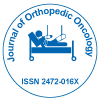Notre groupe organise plus de 3 000 séries de conférences Événements chaque année aux États-Unis, en Europe et en Europe. Asie avec le soutien de 1 000 autres Sociétés scientifiques et publie plus de 700 Open Access Revues qui contiennent plus de 50 000 personnalités éminentes, des scientifiques réputés en tant que membres du comité de rédaction.
Les revues en libre accès gagnent plus de lecteurs et de citations
700 revues et 15 000 000 de lecteurs Chaque revue attire plus de 25 000 lecteurs
Indexé dans
- Google Scholar
- Recherche de référence
- Université Hamdard
- EBSCO AZ
- OCLC-WorldCat
- Publons
- Euro Pub
- ICMJE
Liens utiles
Revues en libre accès
Partager cette page
Abstrait
Brief Discussion on Metastatic Bone Osteolysis
Perez Jessica
Bone-resorbing osteoclast activation facilitates breast and prostate carcinoma bone metastasis. We have identified peroxiredoxin-4 (PRDX4) as a mediator of osteoclast genesis that is released by cancer cells through proteomics methods. Using immunoblotting and mass spectrometry, we now report the characterization of L-plastin in MDA-MB-231 human breast cancer cells’ conditioned media (CM). With L-plastin silenced by siRNA, the osteoclastogenic potential of MDA-MB-231 CM was significantly diminished. L-plastin was found in cancer-derived exosomes, and MDA-MB- 231 CM’s osteoclastogenic capacity was significantly diminished when exosomal release was inhibited. Recombinant L-plastin induced calcium/NFATc1-mediated osteoclastogenesis to levels comparable to continuous RANKL treatment when added to osteoclast precursors primed with RANKL for two days. We used ssRNA to generate MDA-MB-231 cells devoid of PRDX4, L-plastin, or both, and injected these cell populations into CD-1 immunodeficient mice via the tibia. When MDA-MB-231 cells lacking both L-plastin and PRDX4 were injected, micro-CT and histomorphometric analysis revealed a complete loss of osteolysis. Multiple human cancers, including breast and prostate carcinomas, showed an increase in L-plastin and PRDX4 mRNA expression, according to a meta-analysis. This study demonstrates that human breast cancer cells activate osteoclasts through the secretion of L-plastin and PRDX4.
Revues par sujet
- Agriculture et Aquaculture
- Biochimie
- Chimie
- Food & Nutrition
- Génétique et biologie moléculaire
- Géologie et sciences de la Terre
- Immunologie et microbiologie
- Ingénierie
- La science des matériaux
- Le physique
- Science générale
- Sciences cliniques
- Sciences environnementales
- Sciences médicales
- Sciences pharmaceutiques
- Sciences sociales et politiques
- Sciences vétérinaires
- Soins infirmiers et soins de santé
Revues cliniques et médicales
- Allaitement
- Anesthésiologie
- Biologie moléculaire
- Cardiologie
- Chirurgie
- Dentisterie
- Dermatologie
- Diabète et endocrinologie
- Gastro-entérologie
- Immunologie
- La génétique
- Maladies infectieuses
- Médecine
- Microbiologie
- Neurologie
- Oncologie
- Ophtalmologie
- Pédiatrie
- Recherche clinique
- Soins de santé
- Toxicologie

 English
English  Spanish
Spanish  Chinese
Chinese  Russian
Russian  German
German  Japanese
Japanese  Portuguese
Portuguese  Hindi
Hindi